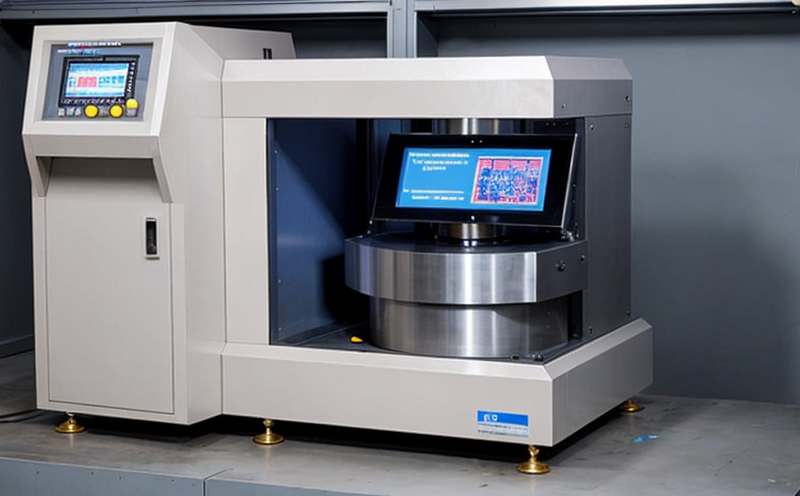ISO 1319 Geometrical Measurement of Structures
The ISO 1319 series provides a comprehensive framework for geometrical measurement in additive manufacturing (AM) and three-dimensional printing (3DP). These standards are crucial for ensuring the dimensional accuracy, surface finish, and overall quality of parts produced through AM processes. The primary goal is to provide a consistent methodology that can be applied across various industries including aerospace, automotive, medical devices, and consumer goods.
Dimensional accuracy in additive manufacturing is paramount as it directly impacts performance and safety. For instance, in the aerospace sector, even minor deviations from specified dimensions can lead to catastrophic failures. Similarly, in medical device manufacturing, precise geometry ensures that implants fit correctly and safely within the human body. These standards help manufacturers achieve tight tolerances by specifying how measurements should be taken and reported.
The ISO 1319 series covers a wide range of measurement techniques such as laser scanning, coordinate measuring machines (CMMs), and optical comparators. It also addresses the challenges posed by complex geometries often found in AM parts. The standards outline best practices for preparing specimens for testing, including cleaning methods to avoid contamination that could skew results.
One key aspect of ISO 1319 is its emphasis on traceability. This ensures that all measurements can be traced back to national and international measurement standards, which is essential for quality control and compliance with regulatory requirements. The series also provides guidance on how to interpret measurement data, including the use of statistical process control methods to identify trends or outliers in production.
Another important feature of ISO 1319 is its role in facilitating communication between different stakeholders involved in AM processes. By using standardized terminology and methodologies, it helps ensure that all parties are on the same page when discussing part dimensions and tolerances.
The standards also address challenges specific to additive manufacturing, such as layer-by-layer construction which can introduce unique sources of error not present in traditional manufacturing methods. They provide recommendations for minimizing these errors through proper calibration and verification of equipment used during production.
In summary, ISO 1319 plays a vital role in ensuring that parts produced via AM meet the highest quality standards across all industries. Its application helps manufacturers maintain consistent product performance while complying with relevant regulations and industry best practices.
Eurolab Advantages
EuroLab offers unparalleled expertise in ISO 1319 geometrical measurement of structures, providing services that cater specifically to the unique needs of additive manufacturing and three-dimensional printing industries. Our team consists of highly qualified professionals who possess extensive experience working with these technologies.
- State-of-the-art facilities equipped with advanced metrology tools allow us to perform precise measurements required by ISO 1319 standards.
- We offer comprehensive training programs designed to educate clients about the intricacies of using ISO 1319 guidelines effectively within their operations.
- A dedicated R&D department ensures that our methods stay current with evolving trends and technological advancements in AM processes.
- Our commitment to excellence is reflected through rigorous quality assurance protocols applied throughout every stage of service delivery, from initial consultation right up until final report generation.
By leveraging these advantages, EuroLab enables clients to confidently achieve precise dimensional accuracy for their AM parts while minimizing potential risks associated with non-compliance or subpar results. This not only enhances customer satisfaction but also contributes significantly towards maintaining competitive advantage in today’s fast-paced market environment.
International Acceptance and Recognition
- The ISO 1319 series has gained widespread acceptance across numerous countries around the world due to its robustness and applicability. Many international standards organizations have endorsed these guidelines, further cementing their status as a global benchmark.
- Industries ranging from automotive manufacturing to healthcare are increasingly adopting ISO 1319 because it provides clear instructions on how to measure complex geometries accurately. This consistency is particularly valuable when working with multinational teams or supplying parts internationally.
The broad applicability of these standards extends beyond just AM and 3DP into other sectors like CNC machining, injection molding, and castings where dimensional accuracy remains critical. Organizations that adhere to ISO 1319 can expect improved credibility among customers who value precision in manufacturing processes.
Additionally, compliance with ISO 1319 helps companies meet regulatory requirements set forth by various government agencies worldwide. This is especially important for businesses operating within highly regulated industries such as aviation or medical devices where stringent quality controls are mandated.
Environmental and Sustainability Contributions
EuroLab recognizes the importance of sustainability in all its operations, including those related to ISO 1319 geometrical measurement services. By adhering strictly to international standards and best practices outlined by these guidelines, we contribute positively towards reducing waste generation associated with manufacturing processes.
- Our commitment to sustainability includes optimizing resource usage during testing procedures, thereby minimizing environmental impact.
- We encourage clients to adopt eco-friendly materials when preparing specimens for measurement according to ISO 1319 requirements whenever possible.
EuroLab’s dedication to sustainable practices aligns with broader industry goals aimed at reducing carbon footprints and promoting responsible resource management. Through our services, we help manufacturers make informed decisions about their production methods while contributing towards creating a more environmentally friendly future.





